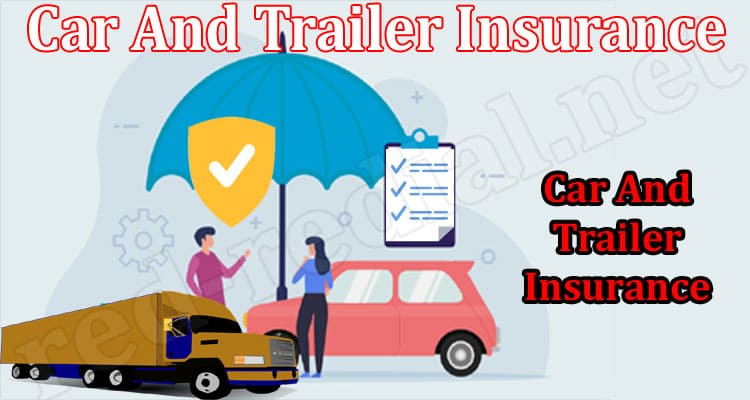Car And Trailer Insurance
Trailers are an interesting case when it comes to car insurance. Do they count as part of the car, or are they their own “vehicle?” The short answer is not exactly. Trailers that aren’t driveable are usually included in the car’s liability coverage. If the trailer is able to move on its own with a motor and driver, then it’s another story. So, that begs the question –what is the right insurance for the many types of trailers.
Types of Trailers And Their Insurance
A trailer can be used for a personal reason like moving or business purposes. Cars and trailers alike require commercial coverage which we’ll touch on later. Personal trailers are usually designed for the transportation of certain items. A boat trailer, for example, is a lot different from an ATV trailer. There are also trailers that transport horses, snowmobiles, motorcycles, and just standard haulers for storage while moving. Since all these trailers tend to be pulled by a car, any damage it causes will be treated as an extension of the car, so it is insured in the traditional sense.
How Much Trailers Are Insured For
Each of the aforementioned trailer types have their own value, which the amount they are insured for is based off of. Common coverage amounts for trailers are:
- ATV trailer – Insured for anywhere from $60,000 to $100,000 based on their value.
- Motorcycle trailer – Insured for anywhere from $800 to $15,000 based on their value.
- Boat trailer – Insured for anywhere from $700 to $5,000 based on their value.
- Snowmobile trailer – Insured for anywhere from $500 to $100,000 based on their value.
- Standard storage trailer – Insured for anywhere from $200 to $8,000 based on their value.
- Horse trailer – Insured for anywhere from $5,000 to $100,000 based on their value.
What Isn’t Covered by Car Insurance For a Trailer
As previously mentioned, the trailer is treated as part of the car as per the vehicle’s existing insurance policy. It’s the contents of the trailer that requires some insurance of their own –contents of high value especially. For those, you will need an umbrella policy which is specialized coverage for specific items. Coverage limits are again based on the value of the items in question. You never know if your boat could be damaged during transport to the landing, for example.
Trailers That Need Separate Insurance
Trailers with their own motors, like campers, required their own insurance as they are standalone vehicles. Several states have insurance requirements for vehicles in order to use the roads and mobile homes are no exception. These trailers also typically have their own license plate and DMV registration, further proving that they are their own vehicles. Its own insurance naturally entails liability insurance, but it is recommended that trailer owners also get collision and comprehensive coverage.
Insurance You Should Get For Trailers
As previously mentioned, comprehensive and collision coverage in addition to the usual liability coverage is wise if you’re looking to get maximum protection for your trailer. It’s hard to narrow down an average for the cost of trailer insurance since there are so many different ones. But they often range from $250 to $500 a year. Policyholders often set their deductible at $500 for the best rates. Roadside assistance is another great coverage for a trailer that offers protection when it breaks on the go. You are able to inquire with both local and national car insurance providers as trailer insurance is a common product among them with competitive rates. Of course, always inquire if your current car insurance is enough if the trailer is just an attachment.




